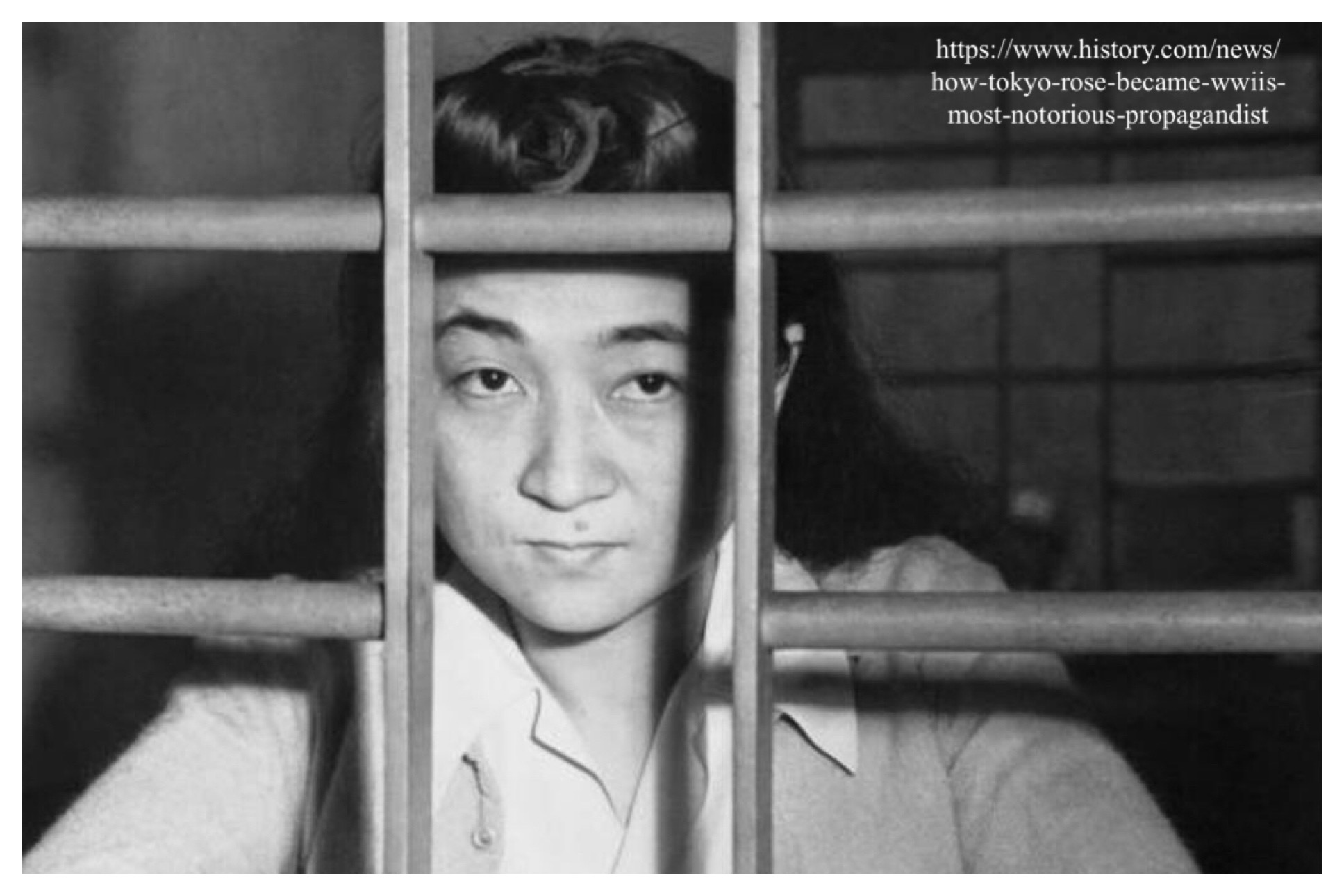World War II is known for many things, one of the more famous was "Tokyo Rose," a woman who spoke for one hour daily to the allied troops. She went by the name "Orphan Ann" but the American soldiers who looked forward to her show called her "Tokyo Rose." I don’t know about you but I have always wondered why this woman would do this job. What do you know about this woman? I decided to do some research to find out.
She found herself stuck in Japan after the attack on Pearl Harbor.
In Los Angeles, California, in 1916, a baby girl named Ikuko Toguri was born to first generation Japanese immigrants. She attended public schools through high school and after graduation attended UCLA where she got a degree in Zoology. At the age of 25 and just six months before the attack on Pearl Harbor, Ikuko went to Japan to visit a sick aunt. She found herself stuck in Japan after the attack on Pearl Harbor occurred.
Ikuko Toguri = Orphan Ann = Tokyo Rose
After a while Ikuko got a job as a typist at Radio Tokyo and later became a broadcaster of her own show called "Zero Hour". While she was working at Radio Tokyo she came to know an Australian POW, Felipe Aquino, who later became her husband. He had been a successful radio announcer before the war and they worked together to write scripts that berated Allied soldiers. Yet, these scripts were so exaggerated that they were comical. What the Japanese thought would chip away at morale ended up as something the soldiers looked forward to. The soldiers found it a way to break up the monotony of their duties while listening to the comical propaganda and catchy music.
The military was tracking down those who they thought might be guilty of war crimes.
After the war, Ikuko wanted to return home to California but was in dire straits financially. Two reporters who had followed some leads to find "Tokyo Rose" offered her money, which she never received, for the exclusive rights to her story. Unbeknownst to her the military were tracking down those who they thought might be guilty of war crimes. So the story being published brought her to the attention of the military. A grand jury indicted her and she was brought back to the United States were she was arrested and found guilty. She always maintained the broadcasts were to undermine the Japanese government.
Witnesses said they were pressured to testify against her.
Six years after her imprisonment she was released for good behavior. She went to Chicago to work in her family store. Twenty years after her trial two witnesses said they were pressured to testify against her. Public opinion changed over the years. Anti-Japanese sentiment went away and in 1977 President Ford pardoned her and her US citizenship was restored. She lived in Chicago until her death in 2006 at the age of 90. Did you know the whole story of "Tokyo Rose"? Did your ancestors ever tell stories of her broadcasts?
If you need any help finding your ancestors, just let us know.


